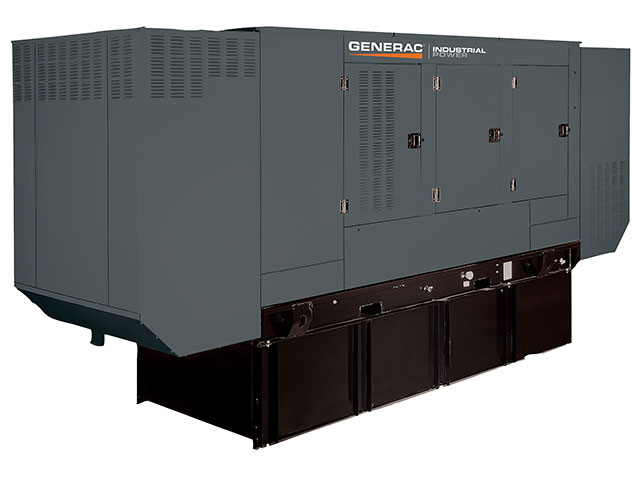
Generators are an integral part of the preparedness planning process for businesses of every size and can greatly reduce business disruption when normal power is interrupted.
Power outages resulting from unpredictable weather, man-made or natural disasters, or site-specific events can disrupt your business operations. Below is segments of a comprehensive disaster planning tool to assist you in reducing the potential for loss and recovering quickly should a disaster strike, no matter what the cause. One important consideration as you develop your business continuity plan is the purchase, operation and maintenance of a generator. This fall-back tool enables you to continue operating some or all of your electronic equipment and lights and minimize business interruptions. This article will provide basic information about generators; however it is not intended to be a comprehensive guide for using generators. Always consult the manufacturer’s instructions for complete information. Generators are an integral part of the preparedness planning process for businesses of every size and can greatly reduce business disruption when normal power is interrupted. At the same time, using a generator poses certain risks that must be addressed for safe operation, including fire, damage to electrical equipment, and even injury or death to those operating the generator or working in the building where it is being used. Proper ventilation is a critical element for reducing the risk of carbon monoxide poisoning from a generator’s engine exhaust.
In addition to safety concerns, proper maintenance is critical to avoid the failure of a generator when it’s needed most. The time to maintain a generator is well before a major storm or disaster strikes; when professional assistance may be unavailable, power lines are down, and access roads are blocked. To gain the greatest business continuity benefits, while minimizing associated risks, it’s important to purchase a generator that is properly designed and sized for your business needs. Once purchased and properly installed, put procedures in place to ensure regular maintenance and that all safe operating practices are followed. Business and building owners should always operate and maintain generators in accordance with the manufacturers’ recommendations.
Before purchasing an electrical power generator, consider what electrical equipment that must be operable when normal power is interrupted. Other considerations include:
OFB-EZ will help you to identify the events that could interrupt business operations. These factors will help to determine the size and type of generator to buy.
One threshold question facing the business owner is whether to purchase a portable or back-up generator, or to choose a permanent or stand-by generator. A portable generator is a relatively small machine, which is usually rated no higher than 15 kilowatts and 240 volts, and is intended to be moved and activated for temporary use at a location where utility-supplied electric power is not available. A standby generator, in contrast, is a back-up electrical system that is permanently installed and may operate automatically through the use of a transfer switch, which senses a power loss, commands the generator to start, and then transfers the selected electrical load to the generator.
In the next post we’ll discuss portable and permanent industrial generators. For more information, contact South Shore Generator in Wareham, MA.
Source: disastersafety.org
Whether your need is to power your business to keep on your production schedule or your home to keep your family safe and sound, South Shore Generator has the product diversity to meet all of your generator requirements. We are proud to sell and service generators from 2kW to 2000kW single set units and up to as large as 100MW utilizing Generac's innovative Modular Power Systems (MPS).